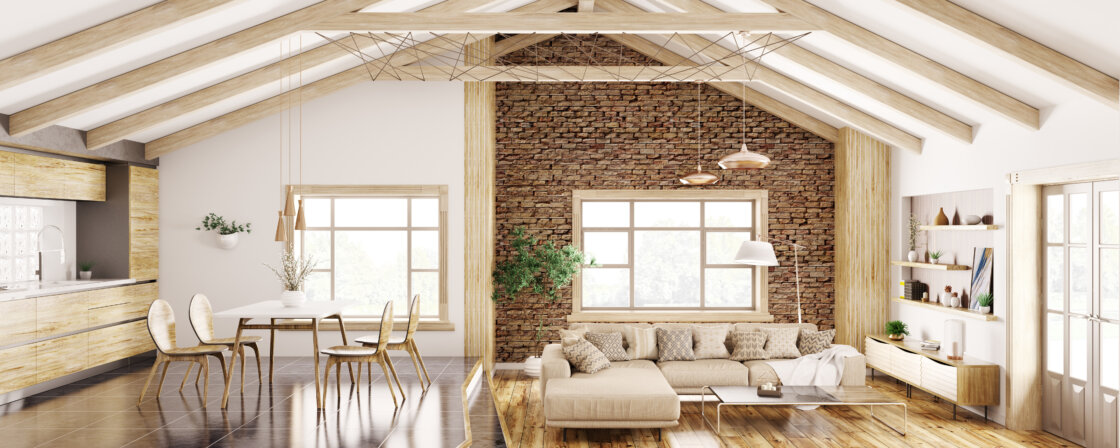As the name suggests, non-residential premises are premises intended for non-residential purposes. It can be offices, shops, production facilities, garages, etc. The building authority determines what kind of premises they are on the basis of the approval.
Lease agreement for non-residential premises
The form of the lease is likely to be the same or very similar to a conventional lease for a flat. The lease agreement for non-residential premises should not lack:
- Identifying information of both parties: name, surname, date of birth, place of residence and, if applicable, the ID number or company name of the tenant and the lessee.
- Subject of the contract: A precise description of the property to which the lease relates. That is, all relevant details from the Land Registry and a description of all the equipment included in the lease.
- Duration of the contract and notice: the contract may be agreed for a fixed or indefinite period. In both cases, however, the contract should include the rules for termination of the lease of non-residential premises and the length of the notice period.
- Price: The contract should also include the price of the lease and a description of what is included (e.g. whether utilities and services are included in the rent or paid separately by the tenant). It should also specify how and when the rent is to be paid.
- Other rights and obligations: the contract may also include the rights and obligations of both parties. If applicable, contractual penalties for non-compliance.
It should also be noted that the new Civil Code states that “If the landlord and the tenant agree that premises other than the dwelling shall be rented for occupation, the parties are bound in the same way as if the dwelling had been rented.” Therefore, both the tenant and the landlord, in the case of the use of non-residential premises for living purposes, have the same rights and obligations as in the case of a conventional lease of residential premises.
Tip for article
Tip: You can find a number of samples of lease agreements for non-residential premises or lease termination notices for non-residential premises on the internet. However, these are often outdated and no one will guarantee their validity. A better solution is to get help from a professional. If you choose an Affordable Solicitor, you will be sure that no important rights and obligations are missing from your lease agreement.
Who is in charge of minor repairs to non-residential premises
A frequently asked question in the case of renting non-residential premises is who is actually in charge of repairs – the tenant or the landlord?
The rules are the same as for a traditional residential lease. That is, the tenant is responsible for minor repairs and routine maintenance. This includes, for example, regular cleaning, keeping the appliances in good condition, or even minor repairs to the bathroom fittings. Generally, repairs and maintenance costing less than CZK 1,000 are the responsibility of the tenant.
The landlord then pays for major repairs and maintenance that exceed CZK 1,000. This may include replacing broken appliances, laying new floors or replacing a broken window. The landlord is obliged to keep the property in a fit state for use. Therefore, it is also responsible for problems with energy and utility supplies.
Rental price of non-residential premises
Rental prices for non-residential premises are often much lower than for residential premises. However, the total price depends on many factors:
- Location.
- Intention: another important factor is their intended use. For example, if it’s office space vs. a clothing store, an office will probably come out cheaper. This is because the latter does not have as much potential to generate profit.
- Size and layout: logically, as size increases, so will the price. As far as layout is concerned, the quality of the layout and efficient use of space plays a major role here.
Are you solving a similar problem?
Are you about to sign a lease?
We will draft or review a lease agreement tailored to your case. Thanks to our services, even after the end of the lease, no disputes will arise between landlord and tenant regarding unclear rights or obligations.
I am interested in legal services
- When you order, you know what you will get and how much it will cost.
- We handle everything online or in person at one of our 6 offices.
- We handle 8 out of 10 requests within 2 working days.
- We have specialists for every field of law.
Is it possible to live in non-residential premises?
The law is not entirely clear on the legality of living in non-residential premises. It is a kind of grey area where the new Civil Code allows living in non-residential premises but the Building Code prohibits it. In practice, this is then dealt with in such a way that it is not actually addressed. Whether it is worth risking possible fines is therefore up to you.
Tip for article
Mortgage or rent? Which financing method to choose? The answer can be found in the next article.
Advantages and disadvantages of living in non-residential space
Advantages
- Price: non-residential premises are in most cases cheaper to rent and sell than residential premises.
- Unique Spaces: Many non-residential spaces can offer a completely unique design that you won’t find in traditional apartments. Often these will include high ceilings, beams, industrial features or huge windows.
Disadvantages
- The space itself: even the non-residential space itself can be a drawback. This is because often these spaces have problems with lack of sunlight, ventilation and subsequent mould formation, high heating costs, poor acoustics or perhaps excessive noise. However, this is not the rule and you need to choose carefully.
- Permanent residence: It is not possible to declare a permanent residence in non-residential premises. As an alternative, you can declare your permanent residence, for example, with your parents or at the municipal office. There are also now a number of services that allow you to declare your permanent residence at a specific address, where you also get your own mailbox.
- Mortgage. The only exception is if you plan to convert the non-residential space into a residential space. However, even in this case you will not succeed with all banks. An alternative option is a US mortgage, for example, where you do not have to specify the purpose of the money.
How to change non-residential premises into residential premises
If you were planning to buy non-residential premises, you may be considering whether it would theoretically be possible to have them converted into living space. The answer is yes, but it’s not that simple.
First of all, you need to ensure that the non-residential space is habitable. The building control office will tell you whether it meets the requirements for habitable accommodation. If the non-residential premises meets the criteria for residential use, you will need to submit a change of use notice. This should state the nature, extent and consequences of the change. It should also include documentation that clearly shows what the change will be. In some cases, the decisions of the authorities affected by the change must also be provided.
If the building authority decides that your non-residential space does not meet the parameters of residential space, it will also tell you what needs to be changed. For you, this means that you will have to obtain a building notice or permit and renovate the property. Only after successful renovation and rectification of the deficiencies can you apply for a re-occupation.
Tip for article
Tip: Read the article on how to submit a building application correctly. Learn how to file a building notification or obtain a building permit, and what all needs to be resolved in connection with the reconstruction.




